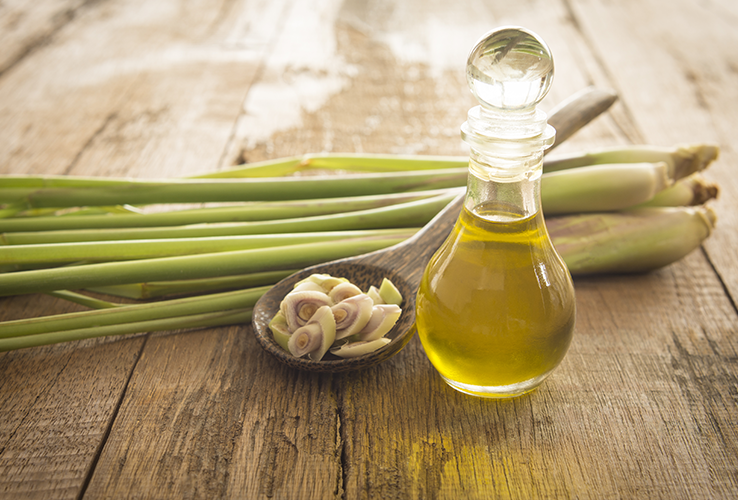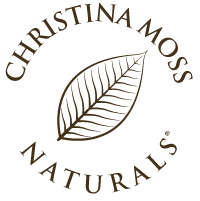
If you’ve ever enjoyed the fresh flavors of Thai or Vietnamese food, you know how delicious lemongrass can be. But its culinary uses are just the beginning. Lemongrass essential oil is one of my favorite oils to use in everyday life and to add to shampoos, soaps, lotions, and more. Here’s why I love this bright, citrusy ingredient.
Lemongrass Essential Oil Uses
Historically, lemongrass was used to treat fevers, inflammation, and indigestion. Today, it’s a popular ingredient in aromatherapy. It has a light, citrusy scent with earthy undertones. Chock full of vitamins and nutrients, it nourishes the body as much as it nourishes the senses. Here are my favorite uses for this aromatic oil:
1. Natural Odor Fighter: Lemongrass’s distinctive scent makes it an excellent choice for fighting stubborn odors. Use it on its own in a diffusor, or mix it with water to create a mist. Needless to say, its aroma also makes this essential oil a lovely addition to soaps, skin creams, shampoos, or anything else that deserves a burst of citrus.
2. Strengthens Hair Follicles: Use lemongrass to strengthen your hair follicles. If your scalp tends to be itchy or irritated, or if hair loss tends to be a problem, massage a few drops of oil into your roots. This essential oil has antibacterial qualities that can help keep your scalp happy and your hair shiny, thick, and strong.
3. Heal Your Skin: Lemongrass is a great skin cleanser. Because it has antiseptic and astringent properties, it can act as a natural toner, balancing your skin and improving its tone.
4. Stress Relief: One of lemongrass’s most popular aromatherapy uses is as a stress reliever. Its calming, soothing scent makes it a relaxing choice for people struggling with stress, anxiety, and insomnia. You may find that using it regularly can even help improve your sleep quality.
5. Relieve Muscle Pain: Lemongrass essential oil contains properties that can help improve blood circulation. Therefore, it can also help reduce muscle spasms, backaches, and cramps. Use lotions that contain lemongrass to moisturize your skin while enjoying its pain relieving qualities.
6. Soothes Arthritis: You’ll also find anti-inflammatory properties in this essential oil. Inflammation is a major cause of the pain felt from arthritis. Massage diluted lemongrass essential oil onto problem areas to take advantage of its effects.
7. Insect Repellant: Bet you didn’t know this one! Many insects won’t go anywhere near lemongrass. Consider planting lemongrass plants around your patio or deck area to ward off annoying bugs. It’s a natural solution that doesn’t carry the nasty side effects you’ll get from conventional bug sprays.
Lemongrass Contraindications
If you choose to use lemongrass essential oil, please keep in mind that it is very strong on its own. Always dilute your lemongrass with a carrier oil. If you’re not sure how to safely blend essential oils, consult with an expert before trying your own mixtures. Don’t use lemongrass oil if you’re allergic, and be cautious if you are pregnant or nursing. Finally, talk to your doctor before using lemongrass oil to treat arthritis, muscle pain, or any other physical issue to make sure it doesn’t interact with any other medications you may be taking.
Lemongrass’s bright scent and many benefits make it one of my favorite essential oils. I hope you can find a way to take full advantage of everything this special oil has to offer.
Are you a fan of lemongrass? What’s your favorite use? Let me know about it in the comments below!

Using lemongrass for muscle spasm in my lower back. Also, for the release of pain in buttock to. Hope to get some result from it. Just how offered can this oil be use on the body or skin. Need, help with this question please.
Dear Leanna,
Thank you so much for your question. Its a good one. I’ve done a bit of research on this, just to make sure that I was giving the complete information. Here’s is what I have: The simplest answer is that you can use the lemongrass oil quite often. The only thing is that you want to make sure you do not have any reactions to it. If you have sensitive skin, it is better to a test on a small patch of skin before using it regularly and all over. It sounds as if you have already tried it though and haven’t had any reactions to it. Also, you want to make sure you don’t apply to any open cuts or sores or near your eyes. I hope this helps and please let me know if you have any other questions.